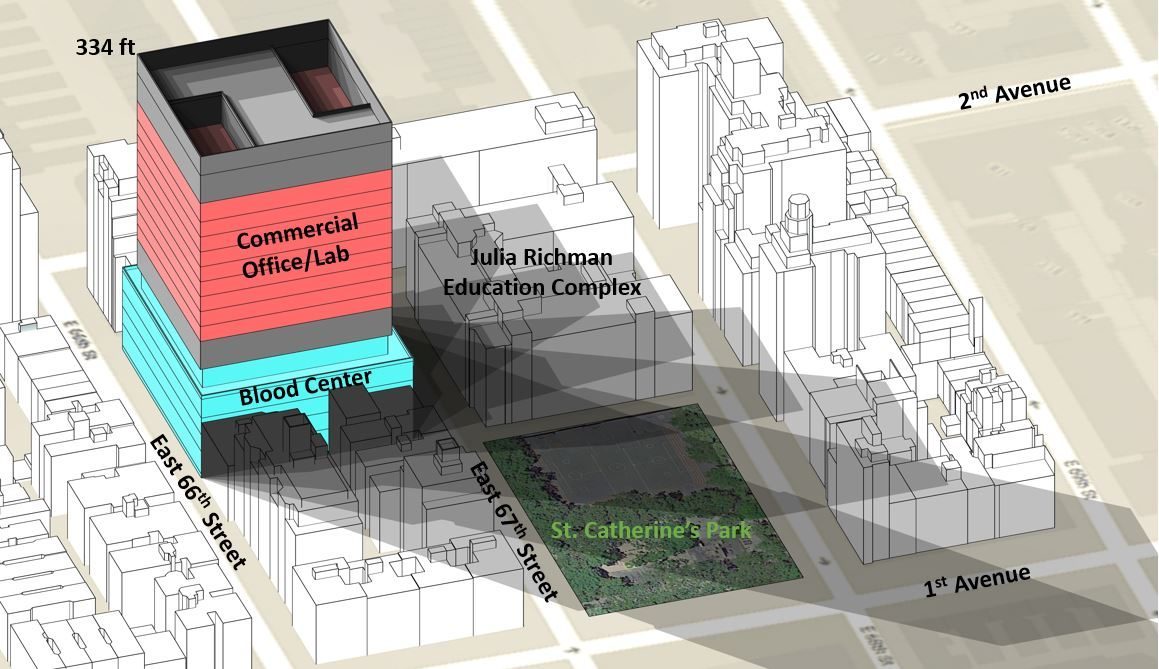Yesterday the Land Use and Zoning committees of the City Council votes to approve a slightly modified version of the rezoning for the New York Blood Center/Longfellow commercial tower. The deal entailed some small "gives" from the applicant: 100 feet shaved off the original proposal for an adjusted height of 233 feet, despite barely reducing the square footage of the building due to the inflated initial proposal. It also included a promise of funding for St. Catherine's Park and the Julia Richman Education Complex. But the fight is not over.
Despite the alterations, the tower is still entirely too large for its location on a narrow residential side street (over 3x the existing height limit of 75 feet), and the introduction of high-density commercial development to an R8B block threatens the integrity of low-scale midblock zoning citywide. For these reasons, the deal was not supported by local Council Member Ben Kallos, who has opposed the project with the backing of other East Side local elected officials, a unanimous Community Board, leadership from FRIENDS, and an engaged public.
The revised plan now goes back to the Department of City Planning for a review of the changes, which could take up to 15 days. After that, the plan moves to a final vote of the full City Council, where a supermajority vote will be required in order to pass the project, thanks to a protest recently filed by the neighbors using a little-known provision in the City Charter. Rarely invoked, it raises the vote threshold from a simple majority to three-quarters of Council Members, treading new ground in the typical trajectory of land use cases.
If the project does get approved over Council Member Kallos' objections, it will signal a significant and troubling departure from the tradition of deference paid to local Council Members in land use decisions. The practice of "member deference" helps maintain accountability and ensures that communities have a voice in local development through elected representatives. The longstanding tradition has not broken since 2009, and not once in the 8 years of Corey Johnson's tenure as Council Speaker. New Yorkers across the City should be sounding the alarm over the ramifications of that direct assault on community participation for their neighborhoods.
FRIENDS will continue to stand with Council Member Kallos, Congresswoman Carolyn Maloney, State Senator Liz Krueger, and Assemblymember Rebecca Seawright in opposition to this project, and the prospect of forever weakening member deference, the only bit of leverage average New Yorkers have against powerful developers and lobbyists in the already lopsided debates in cases of developer overreach. Every neighborhood needs a meaningful seat at the table.


